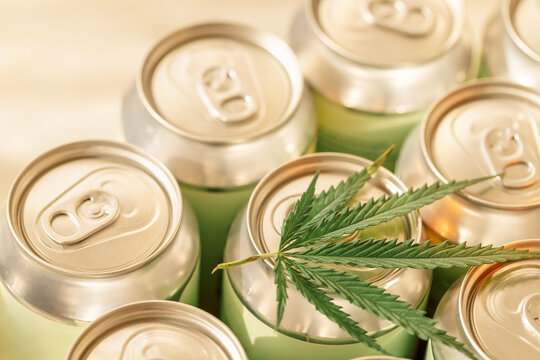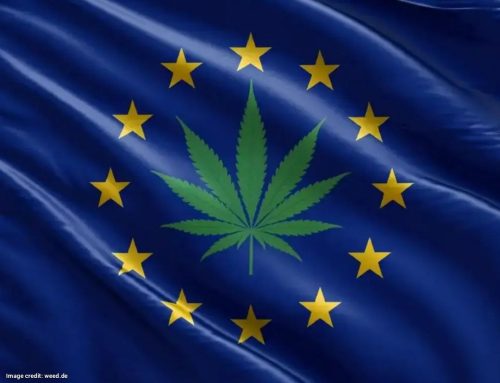Hemp-Derived THC Beverages Gain Traction as U.S. Alcohol Consumption Declines
LOS ANGELES – Hemp-derived THC beverages generated $382 million in sales in 2024, a marked increase from previous years, yet 2025 projections indicate tempered growth at $571 million, climbing to $756 million by 2029 with a compound annual growth rate (CAGR) of approximately 14%.
THC beverages are gaining momentum as alternatives to alcohol, particularly as U.S. alcohol consumption has fallen to a historic low, with only 54% of adults reporting drinking in the past year, down from 62% in 2023, according to Gallup. This decline, most pronounced among Republicans with a 19-point drop since 2023, aligns with rising interest in hemp-derived THC drinks as consumers seek milder, hangover-free options.
The category appeals to diverse consumers, with nearly one in five users new to cannabinoids, drawn to the familiar beverage format over smoking or vaping. Brands like Tilray’s hemp-derived lines reported a 36% sales increase in late 2024, reflecting growing demand for alcohol alternatives. Retail expansion into liquor stores, convenience outlets, and delivery platforms like DoorDash has bolstered growth, though Cannabis beverages accounted for just 0.9% of total Cannabis sales, or $54.6 million, in Q1 2025. The broader hemp THC market hit $3.5 billion in 2024 and is projected to reach $4.4 billion by 2029, signaling potential for beverages to capture a larger share.
The drop in alcohol use, driven by health concerns and shifting preferences among younger demographics like Gen Z and Millennials, has created an opening for THC beverages, with 21% of Dry January participants replacing alcohol with Cannabis products. These drinks offer a social ritual without alcohol’s health risks, such as liver disease or increased cancer risk, appealing to the 40% of Americans aiming to reduce alcohol intake.
However, regulatory challenges hinder progress. As of mid-2025, 24 states permit hemp-derived THC beverage sales, but others have imposed restrictions or bans. In 2025, 27 states proposed legislation targeting intoxicating hemp products, with Republican-led states pushing stricter measures. Federal discussions, particularly around the 2025 Farm Bill, propose limiting hemp cannabinoids, potentially restricting products with detectable THC.
Consumer awareness remains low, with surveys showing confusion about availability and effects, deterring adoption. Distribution faces obstacles, including refrigeration needs and varying retail policies, while competition from regulated Cannabis markets, where beverages hold a small share, and alcohol companies responding to declining beer sales intensifies pressure.
Hemp-derived THC beverages are well-positioned to capitalize on declining alcohol consumption, offering a wellness-oriented alternative. However, sustained growth requires unified regulations and enhanced consumer education to fully integrate into the $117 billion U.S. beverage market.




































